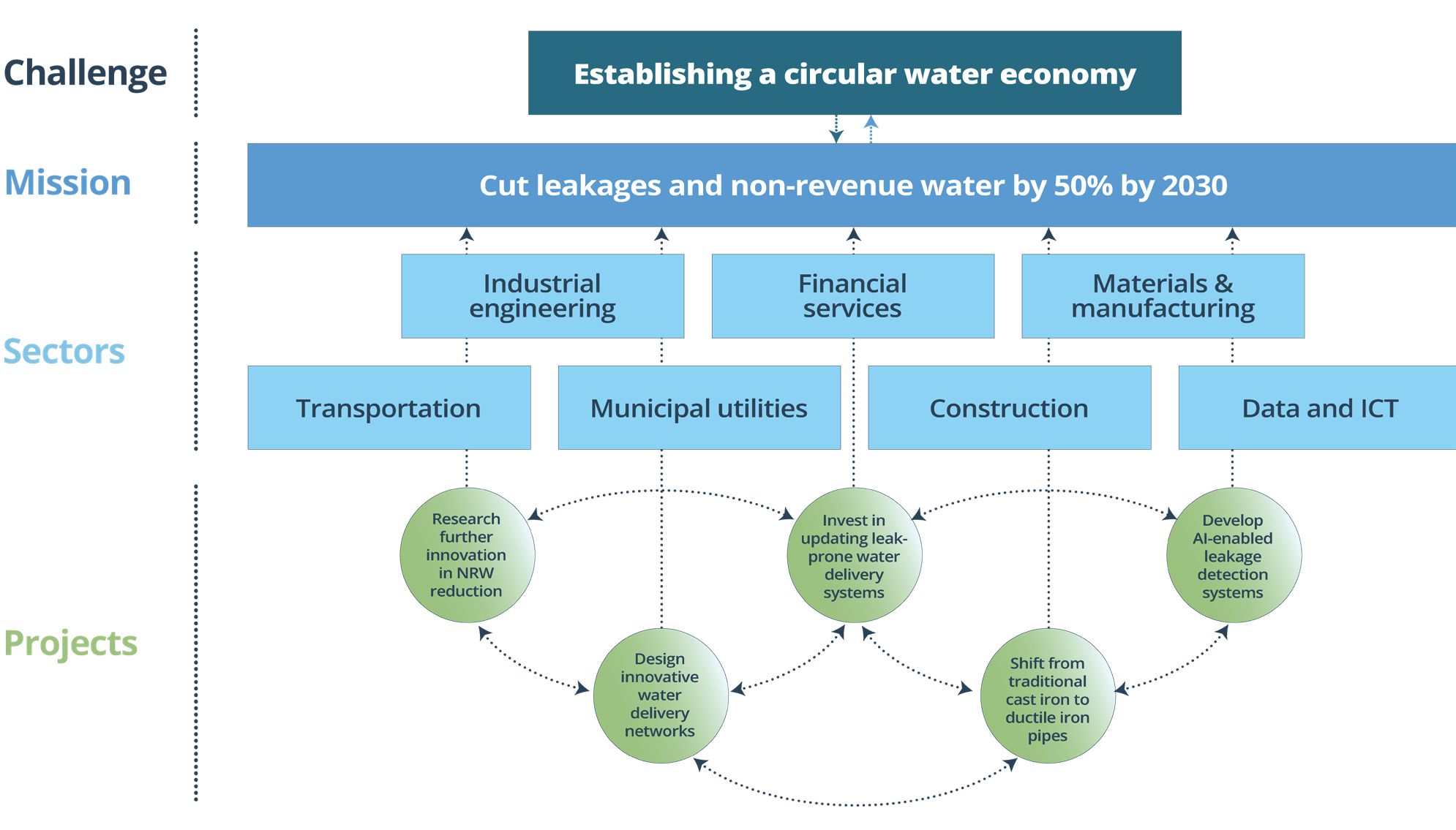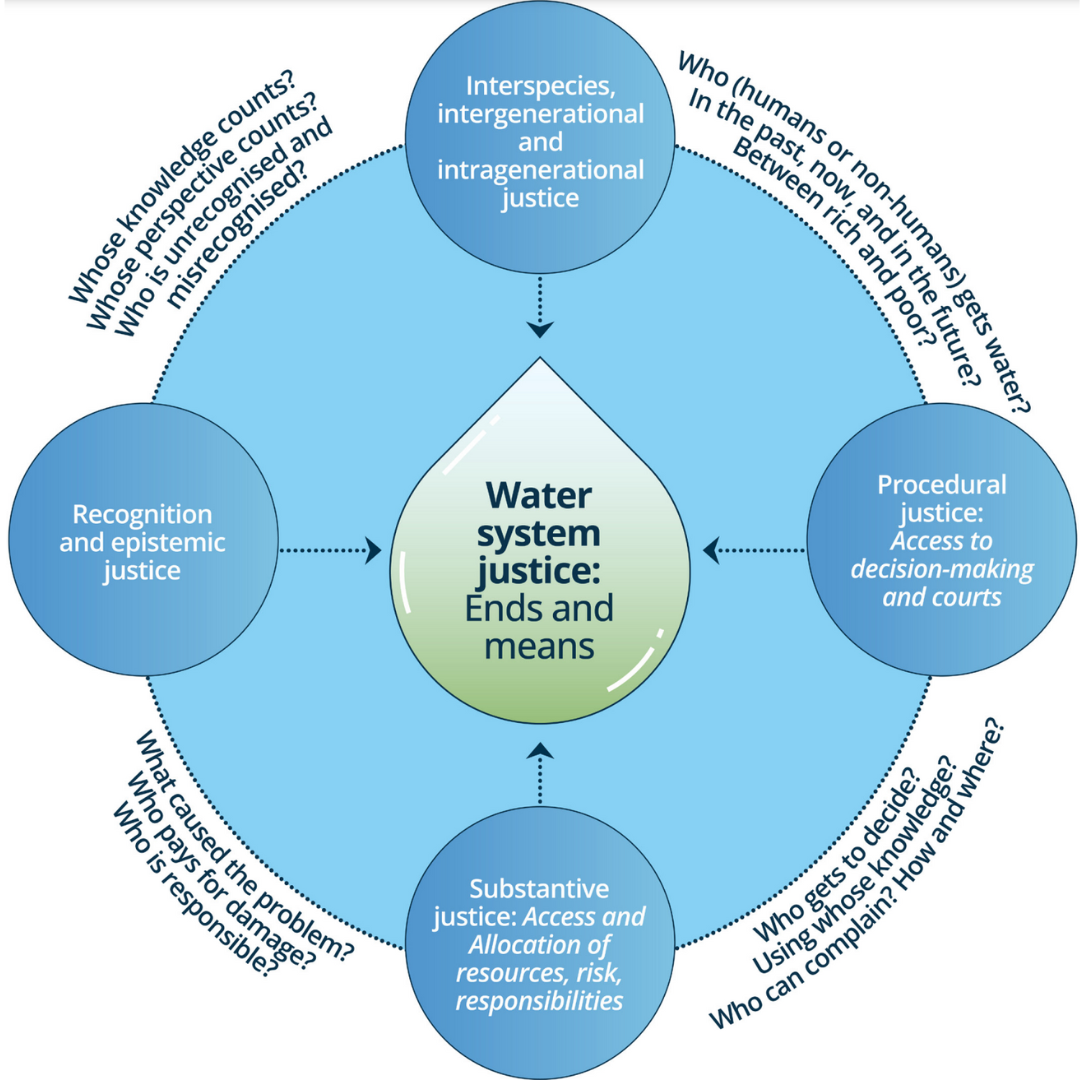Key takeaways
Markets must be shaped by governments and other actors to become more efficient, equitable, and environmentally sustainable. The current system treats our biggest challenges – climate change, inequality, the lack of clean water – as failures of an otherwise sound system, even though these challenges are embedded in the way global economies operate. We must shift our economic framing from fixing externalities after-the-fact to proactively shaping economies so that water is allocated efficiently, equitably, and sustainably from the start. Markets across our economies – from agriculture and mining, to energy and semiconductors – must be reshaped in their water use and impact on the hydrological cycle, using outcomes-orientation and directionality.
Governments must adopt a mission-driven approach to policymaking, bringing multiple sectors together to tackle the global water crisis in an economy-wide way. Missions are ambitious, clear, and time-bound objectives that mobilise cross-sectoral solutions to difficult challenges. They focus on outcomes, as opposed to outputs, and in doing so, missions can target challenges that do not necessarily have pre-defined, technological fixes. Solving these therefore requires a bottom-up approach, exploring many possible solutions and mobilising economy-wide innovation, investment, and partnerships. This approach is adaptive, cross- sectoral, inclusive, and firmly committed to economic efficiency, justice and sustainability.
Justice and equity must be at the centre if we are to solve the global water crisis (Gupta et al.,2024). The common-good approach and a framework for Water System Justice can help governments shape markets so that blue and green water is managed in a fair and sustainable way. Taking justice and equity seriously ranges from including voices of local communities and the most vulnerable, to embedding justice- and equity-based values in partnerships and contracts.
We need to revise our assessments for how much water humans need for a dignified life. Taking an economy-wide approach and factoring in other needs for human development, such as food and industry, as well as blue and green water supplies, presents a far higher integrated estimate of freshwater needs for a dignified life. The GCEW recommends increasing the minimal water requirements from 50 to 4,000 litres/person/day.

